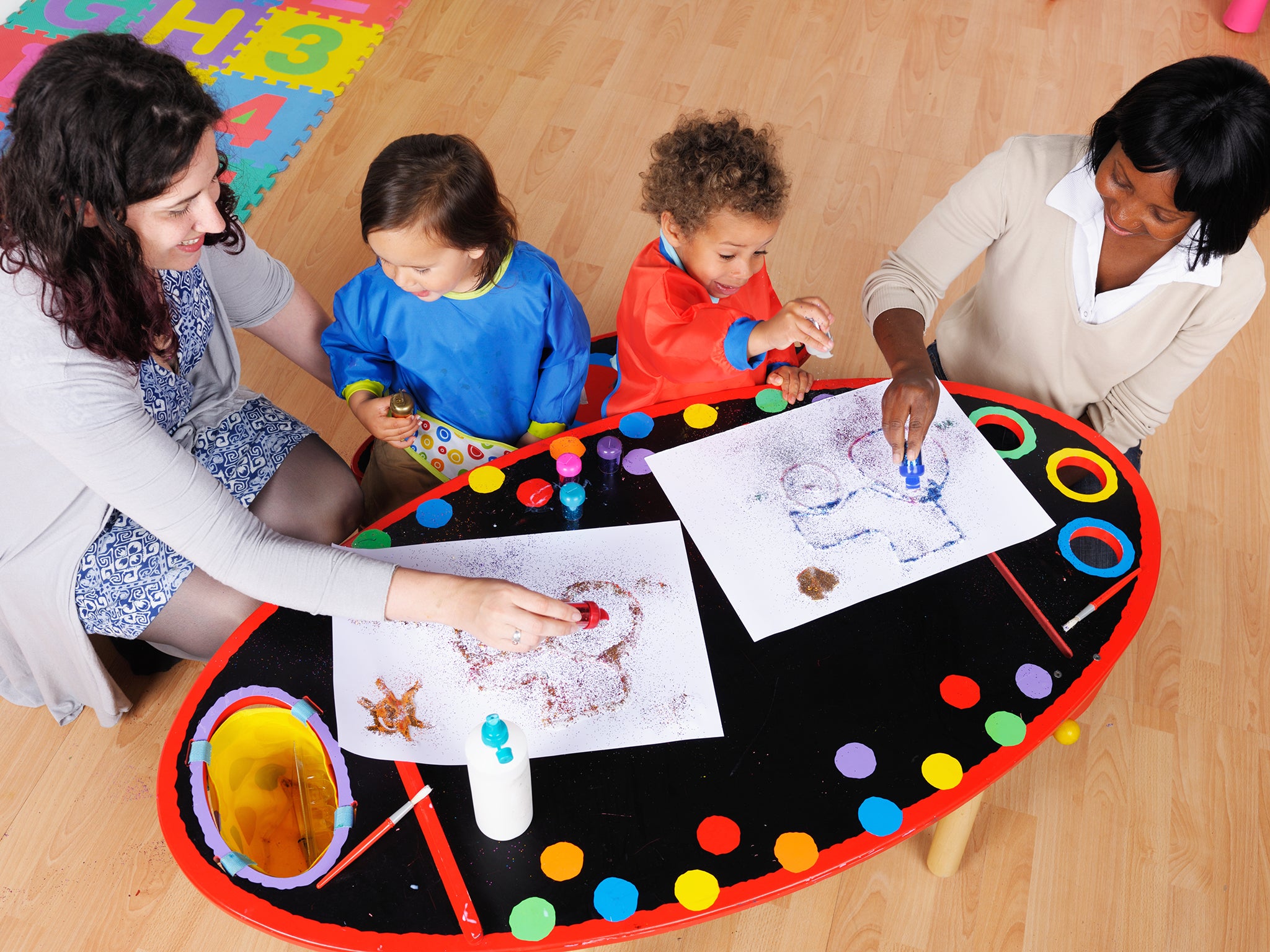Early spending on vulnerable children falls 48 per cent over last decade, charities warn
An estimated 1,000 children’s centres and 750 youth centres were forced to close between 2010 and 2020, charities said.

Your support helps us to tell the story
From reproductive rights to climate change to Big Tech, The Independent is on the ground when the story is developing. Whether it's investigating the financials of Elon Musk's pro-Trump PAC or producing our latest documentary, 'The A Word', which shines a light on the American women fighting for reproductive rights, we know how important it is to parse out the facts from the messaging.
At such a critical moment in US history, we need reporters on the ground. Your donation allows us to keep sending journalists to speak to both sides of the story.
The Independent is trusted by Americans across the entire political spectrum. And unlike many other quality news outlets, we choose not to lock Americans out of our reporting and analysis with paywalls. We believe quality journalism should be available to everyone, paid for by those who can afford it.
Your support makes all the difference.Spending on early support for vulnerable children has halved during the past decade, with families in the poorest parts of England hit the hardest, a new analysis found.
In 2010, councils in England spent the equivalent of £3.6 billion on early intervention services. But nearly a decade on, this amount fell by 48 per cent to £1.8 billion, the Children's Services Funding Alliance said.
Families have been refused help because their problems are not "bad enough." Cuts to central funding force councils to spend more on expensive and disruptive crisis interventions, the charity alliance said.
Some local authorities have cut early help support by more than 80 per cent in the last decade to 2020, of which the worst hit arease were Sunderland, Walsall, Stoke on Trent and Herefordshire.
The most deprived local authorities reduced early intervention spending by nearly 60 per cent over this period, while in the least deprived areas, the fall was limited to 38 per cent.
Overall annual spending on children's services fell by £325 million, with councils in the most deprived parts of England reducing their spending on children's services by 14 per cent per child.
Early intervention services help families before problems escalate, such as providing support for substance misuse, help with babies, respite care, and young offender and crime prevention services.
Pro bono Economics analysed figures from the Department for Education and Ministry of Housing, Communities and Local Government, for Action for Children, Barnardo's, The Children's Society, National Children's Bureau and NSPCC.
The charities say councils are trapped in a "vicious circle" where they are forced to reduce spending on early help and then pour more resources on crisis interventions, which are expensive and disruptive to children.
The ongoing budget pressures faced by councils have been made worse by the coronavirus pandemic, the alliance said.
In a separate study by child mental health charity, Anna Freud Centre, 50 per cent of the 1500 nursery staff interviewed said that they felt unwell due to work-related stress during the past year.
Sixty-six per cent said that the pandemic had impacted their wellbeing and mental health.
The charities fear that local authorities are stretched and cannot cope with the additional pressures brought on by the crisis. They are urging the government to invest in early intervention services in the autumn spending review.
Mark Russell, chief executive at The Children's Society, said, "There is a real risk the situation will get even worse following successive lockdowns which have increased vulnerability among many children and young people and exposed them to new dangers."
Imran Hussain, director of policy and campaigns at Action for Children, added: "It's a moral disgrace and an economic waste that children are left to come to harm before they're given the help they need.
"An approach centred on firefighting crises is not a strategy that protects children."
The charities said an estimated 1,000 children's centres and 750 youth centres were forced to close between 2010 and 2020.
A government spokeswoman said that local authorities will receive an additional £1.55 billion of un-ringfenced grant funding this year.
“We have made an extra £4.6 billion available in response to changing pressures including for children’s services,” she said.
Includes reporting by PA
Join our commenting forum
Join thought-provoking conversations, follow other Independent readers and see their replies
Comments